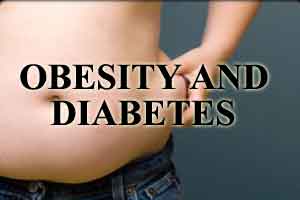- Home
- Editorial
- News
- Practice Guidelines
- Anesthesiology Guidelines
- Cancer Guidelines
- Cardiac Sciences Guidelines
- Critical Care Guidelines
- Dentistry Guidelines
- Dermatology Guidelines
- Diabetes and Endo Guidelines
- Diagnostics Guidelines
- ENT Guidelines
- Featured Practice Guidelines
- Gastroenterology Guidelines
- Geriatrics Guidelines
- Medicine Guidelines
- Nephrology Guidelines
- Neurosciences Guidelines
- Obs and Gynae Guidelines
- Ophthalmology Guidelines
- Orthopaedics Guidelines
- Paediatrics Guidelines
- Psychiatry Guidelines
- Pulmonology Guidelines
- Radiology Guidelines
- Surgery Guidelines
- Urology Guidelines
New hormone injection reduces blood sugar and weight in 4 weeks in obese diabetics

New hormone injection reduces blood sugar and weight in obese patients. An injection has helped reduce body weight and blood sugar levels in patients with diabetes and obesity in four weeks find a new study. The work has been published in Diabetes Care.
In the study, patients lost on average 4.4kg and the treatment led to substantial improvements to their blood sugar, with some patients' reducing to near-normal levels.
Researchers wanted to see if infusing patients with the GOP hormones glucagon-like peptide-1 (GLP-1), oxyntomodulin and peptide, to mimic the high levels seen after surgery, could aid weight loss and reduce high blood sugar levels.
Obesity is a common problem in the UK and it is estimated that one in four adults are obese. One of the most common types of weight loss surgery is a procedure known as gastric bypass surgery, which can be very effective in keeping excess weight off and improving blood sugar levels in diabetics. However, some patients decide against surgery and the procedure can cause complications such as abdominal pain, chronic nausea, vomiting and debilitating low blood sugar levels.
Previous research by Imperial College London suggested that one of the reasons why gastric bypass surgery works so well is because three specific hormones originating from the bowels are released in higher levels. This hormone combination, called 'GOP' for short, reduces appetite, causes weight loss and improves the body's ability to use the sugar absorbed from eating.
Fifteen patients were given the GOP treatment for four weeks using a pump that slowly injects the GOP mixture under the skin for 12 hours a day, beginning one hour before breakfast and disconnecting after their last meal of the day. Patients also received dietetic advice on healthy eating and weight loss from a dietician. Professor Tricia Tan, Professor of Practice (Metabolic Medicine & Endocrinology) at Imperial College London and lead author of the study, said: "Obesity and type 2 diabetes can lead to very serious and potentially life-threatening conditions such as cancer, stroke and heart disease. There is a real need to find new medicines so we can improve and save the lives of many patients. Although this is a small study our new combination hormone treatment is promising and has shown significant improvements in patients' health in only four weeks. Compared to other methods the treatment is non-invasive and reduced glucose levels to near-normal levels in our patients."
The research has been presented at the American Diabetes Association 79th Scientific Sessions meeting at San Francisco, took place at Imperial College London in collaboration with the University of Copenhagen and University College Dublin. The treatment was trialled on patients at the National Institute for Health Research Imperial Clinical Research Facility at Hammersmith Hospital, part of Imperial College Healthcare NHS Trust.
Twenty-six obese patients with prediabetes (when blood glucose is too high but not high enough to be classified as diabetes) and those with diabetes were recruited to the study at Hammersmith Hospital from July 2016 to October 2018. Fifteen patients were randomly selected to receive the hormone treatment and 11 patients were given a saline (saltwater) infusion as a placebo over a four-week period. The team also recruited 21 patients who had undergone bariatric surgery and 22 patients who fol a very low-calorie diet to compare the results of GOP. All patients were given a glucose monitoring device to track their glucose levels following treatment.
In the trial, patients on the GOP treatment lost an average of 4.4kg, compared with 2.5kg for participants receiving a saline placebo. The treatment also had no side effects.,
However patients who received bariatric surgery or who followed a very low calorie diet lost significantly more weight than GOP patients. The changes in weight were 10.3kg for bariatric patient and 8.3kg for patients who followed a very low calorie diet.
Professor Tan commented: "Although the weight loss was smaller, using the GOP infusion would be preferable as it has fewer side effects than bariatric surgery. This result shows that it is possible to obtain some of the benefits of a gastric bypass operation without undergoing the surgery itself. If further trials are successful, in future we could potentially give this type of treatment to many more patients."
The team also found that GOP was capable of lowering blood sugar levels to near-normal levels, with little variation in the blood sugar. Patients who received bariatric surgery also had an overall improvement in blood glucose, but the levels were much more variable, leaving them vulnerable to low blood glucose levels.
blood sugarblood sugar testcontinuous glucose monitoringDiabetes Carediabetes insipidusDiabetes Mellitusdiabetes symptomsFasting blood sugargestational diabetesglucagon-like peptide-1 (GLP-1)GOPhormoneindian medical newsinjectioninsulininsulin dosageinsulin injection sites diabetesMedical newsnewnormal blood sugarnormal blood sugar levelobeseoxyntomodulinpatientspeptideprediabetesreducestype 1 diabetes symptomstype 2 diabetes symptomsType-1 diabetesType-2 diabetestypes of diab
Next Story
NO DATA FOUND

Disclaimer: This site is primarily intended for healthcare professionals. Any content/information on this website does not replace the advice of medical and/or health professionals and should not be construed as medical/diagnostic advice/endorsement or prescription. Use of this site is subject to our terms of use, privacy policy, advertisement policy. © 2020 Minerva Medical Treatment Pvt Ltd